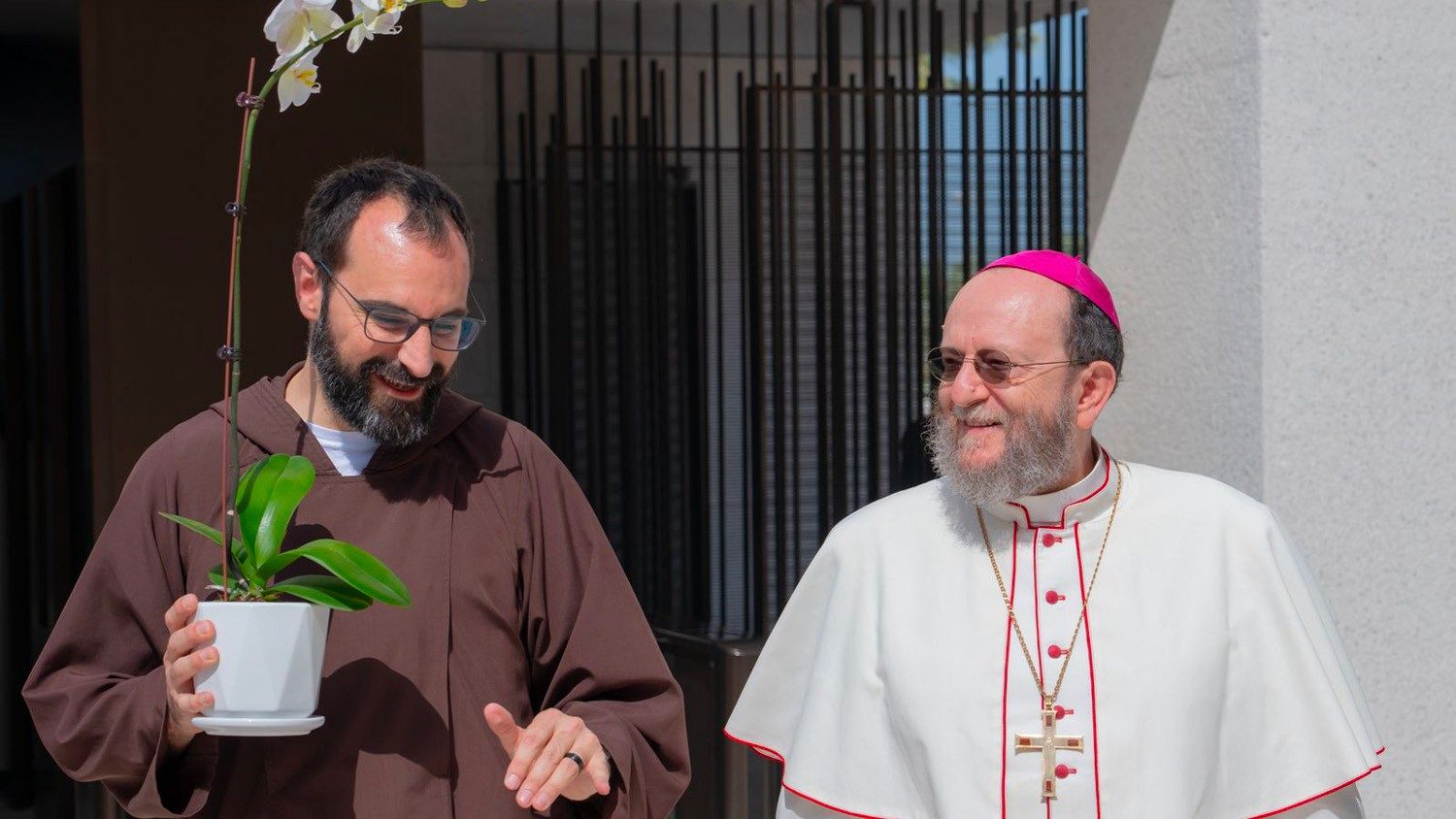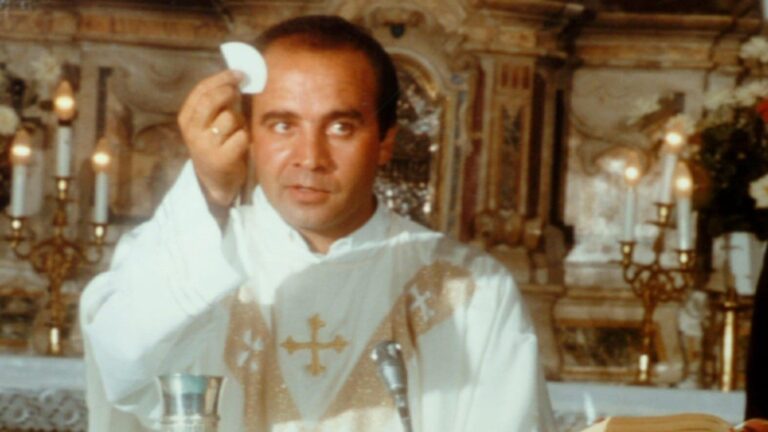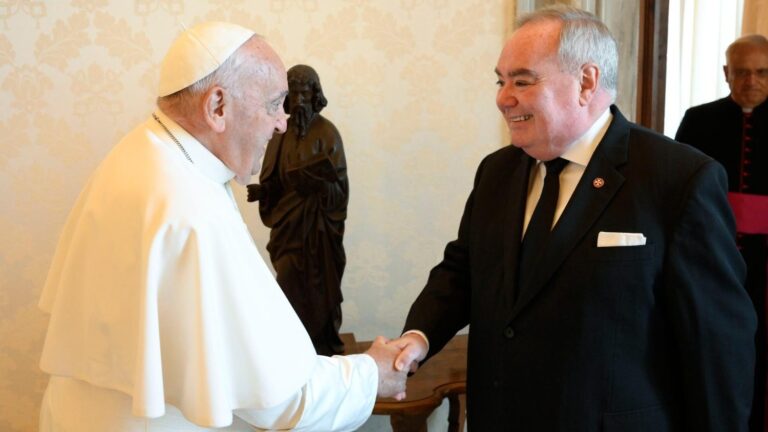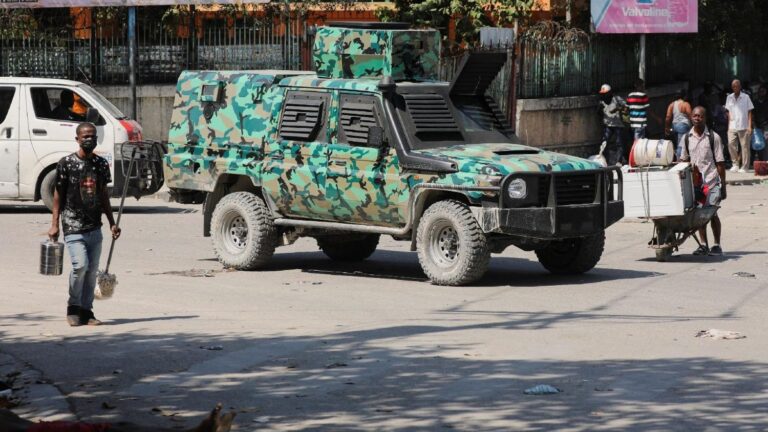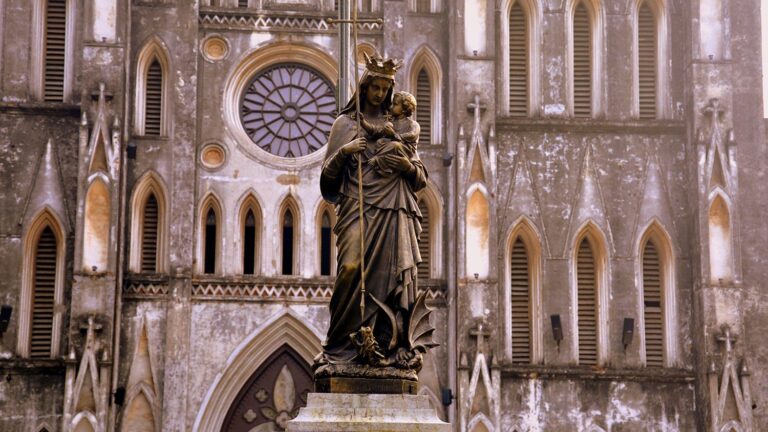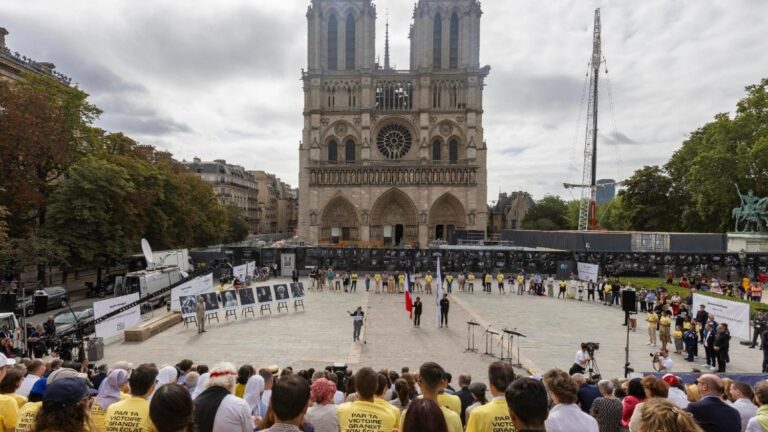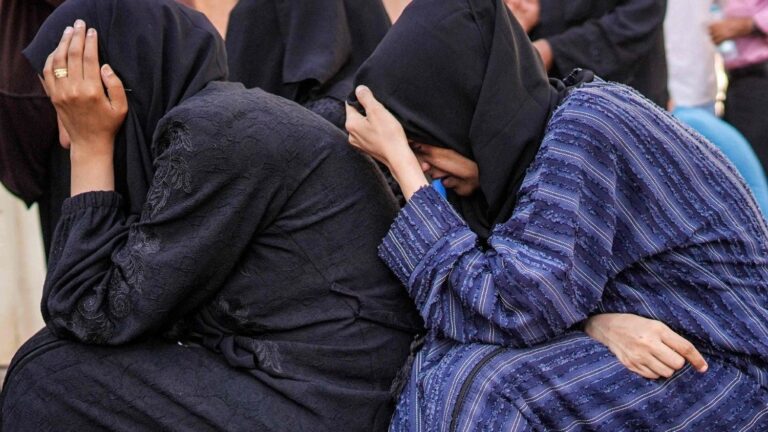Bishop Martinelli ‘s visit to Abrahamic Family House promotes dialogue and unity
Vatican news
Father Stefano Luca OFMCap, speaks of the significance of the first pastoral visit of the Apostolic Vicar of Southern Arabia to St. Francis Church at the Abrahamic Family House in Abu Dhabi.
By the Communications Office of the Apostolic Vicariate of Southern Arabia
The first pastoral visit of the Apostolic Vicar of Southern Arabia took place on Sunday, 16 June. What is the significance for the St. Francis Church at the Abrahamic Family House?
It should be kept in mind that the Abrahamic Family House opened practically just over a year ago, so after this first year of pastoral activities this visit carries a very special importance. I would say that the encounters His Excellency Bishop Paolo Martinelli had during the pastoral visit express at least three levels of significance:
First, it certainly attests and testifies to the ongoing commitment of the Catholic Church regarding the human fraternity horizon, and thus the commitment to the Abrahamic Family House experience. Indeed, Bishop Paolo Martinelli shared his support and the will of the Vicariate to promote the inspiring dialogical dimension of the magisterium of Pope Francis.
Secondly, the style in which the Bishop carried out the visit was itself a truly fraternal\synodal exercise. Through his attentive and fatherly attitude not only to the faithful who attend the church but also to those who work within the entire Abrahamic Family House complex, he created opportunities for dialogue and grateful listening. We can say that this visit gave witness to a pedagogy of a shared path that does not fail to listen to the other-from-oneself, a pedagogy that chooses to allow one another to be positively provoked in order to move forward together on the path of a fraternity capable of embracing differences without overcoming them. That is why the visit has been a great experience for us in exercising synodality and dialogue with all people of goodwill.
Thirdly, the words of encouragement and Christian hope that the faithful heard during the dialogue with the Bishop provided great help and strength in continuing to be an active part of the unique and special Abrahamic Family House initiative.
Father Stefano, it has been a year since you started your ministry in this very special place, can you tell us how it is going?
I would say very well. The Christian community is growing not only in terms of numbers but also in terms of a sense of belonging and awareness that peaceful coexistence with respect for differences is the call to «God’s desire for humanity» nowadays.
My service here is quite intense and in multiple areas: certainly, first of all, there is the sacramental and pastoral care of the faithful who attend our St. Francis church, and then there is the support and collaboration with the educational and interreligious dialogue activities that the Abrahamic Family House centre promotes, next, there is the ecumenical dialogue work (every month we promote a Taizé prayer and we are working to celebrate both the ecumenical week of prayer for the time of creation in September and the week of prayer for Christian unity in January), and lastly, we should not forget the more institutional meetings with personalities from all over the world, this too is an important aspect of the ministry that I have.
Tell us more about who attends St. Francis church.
One thing that is very beautiful and vibrant is the mix of the Christian community. You know, in the entire Vicariate our faith community is composed of migrants. We are all migrants here, clergy and faithful alike. Bishop Paolo Martinelli on several occasions calls to the great and exciting challenge and responsibility of being a stronghold for a new ecclesiology, a migrant ecclesiology, where a «theological Pentecost» can find space and expression. Normally, in the parishes of the Vicariate, we try to support the various linguistic and cultural communities by providing them with specific pastoral care, and this is very necessary because one needs to maintain its own identity. The Gospel demands a cultural identity in order to be embodied. However, this cannot be enough; in fact, it is complementary to this important truth to always keep in balance the belonging to the one Church. The unity in the one baptismal vocation must manifest itself and must always be nurtured. Here, it seems to me that the particular mandate of the St. Francis church is to be a strong sign of this baptismal unity. In other words, we offer to all our Catholic community a common path to following Christ through Franciscan spirituality. In this way, the faithful from India, the Philippines, Africa, the Middle East or the Western part of the world join together not only for the Celebration of the Sacraments but also for all the other activities we promote.
You mentioned Franciscan spirituality, could you please tell us why and maybe give us some concrete examples of the activities you have implemented in this first year?
The Franciscan spirituality is because everything here can be traced back to St. Francis of Assisi. In fact, it is on the occasion of the eight hundredth year anniversary of the encounter between St. Francis and the Sultan of Egypt that in 2019 the Holy Father and the Grand Imam of al-Azhar decided to cowrite and sign together, what we can fearlessly call, the historic joint declaration intitled Human Fraternity For World Peace And Living Together. Inspired by this, the Emirati government decided to realize the Abrahamic Family House. It is because of this Franciscan root that the Catholic church located within the complex is therefore dedicated to the “Poverello” of Assisi and the President of the United Arab Emirates – His Highness Sheikh Mohamed bin Zayed Al-Nahyan – gifted it to the Holy Father Pope Francis.
However, it is not only because of a past event that took place between Francis of Assisi and Sultan al-Malik al-Kāmil that is guiding us in having a Franciscan emphasis but also the awareness that the capacity for dialogue and universal friendship that Franciscan spirituality brings can be decisive support to our faithful living side by side with Muslims.
Having said so, one example is the catechetical program for adults entitled «The ten Franciscan words». In very few words, we go over the Franciscan spirituality by actualizing it in ten words. The program is pretty extensive (it has a duration of about a couple of years) and consists of deepening each word according to four Franciscan pillars: intellectual knowledge, prayer, spiritual sharing, and fraternity.
Another example is the special Franciscan octocentenary (the Greccio crib 2023; the Stigmata of St. Francis 2024; the Canticle of Creatures 2025; the st. Francis death 2026) for these events of grace we are holding special meetings to help the faithful comprehend how these anniversaries are deeply connected to their daily lives. For instance, we are reflecting a lot through the Canticle of Creatures for the promotion and implementation of the Laudato si’. In this regard between November and December 2023, the Emirates played a leading role by hosting the United Nations Climate Change Conference (Cop28). For the first time, there was a faith pavilion. This was a great opportunity to implement the theme of ecology also from the perspective of interfaith dialogue. In fact, in Abrahamic Family House we experienced several dialogue events precisely on the theme of environment and sustainability through the lens of different faiths.
These are some of the activities of the Church, I guess the synagogue and the mosque also have their own right. But what about the Interreligious dialogue? Tell us a little more about the dialogue activities that you just mentioned.
Of course. Each place of worship is independent and has its own «pastoral programs and activities» for its respective communities, and this is very important because we maintain and respect our differences, each of our three religions has separate and dedicated physical spaces. There is absolutely no merging or syncretic contamination of any kind in terms of faith and religion. So, having affirmed that, we have a fourth place that we call: Forum. Here all the communities meet and participate in workshops designed precisely to bring different faith communities together, to dialogue, to get to know each other, and to promote mutual understanding. We have educational workshops that go from artistic actions to panel discussions or fireside chats. Some activities are designed specifically for children or youth because youth are the present and the future!
All the great work that is done in the forum rotates on promoting the values contained in the Human Fraternity document. What I find interesting and stimulating is the promotion of the Document on two levels of action: the more theoretical \ academic one, and the one directed toward its popularization and concrete applications in people’s daily lives. This is what we implement in this fourth space called precisely forum because it is a place for meeting and dialogue. Abrahamic Family House is located in the heart of the Abu Dhabi cultural district precisely because we promote the culture of dialogue and the culture of human fraternity.
It is interesting that the name ‘Abrahamic Family House’ contains the concept of family and home. Which meanings do these words have?
Abrahamic Family House is not only an institution, a meeting place, a centre where there are three Houses of worship and a forum but, as you rightly pointed out, it is a family and therefore a house.
First, it is important to say that the Abrahamic Family House is the house where the three religious leaders live. I have a residence behind the church, the rabbi has his behind the synagogue and the imam has his behind the mosque. The three of us live here, Abrahamic Family House is our house. And this is a decisive element because it is a huge witness of the neighbourhood, friendship and deep respect that I think is unique all over the world. This house-making between us is felt among the faithful and all those who visit the Abrahamic Family House during the day. Everyone, beyond religious affiliation, continues to give back the same feedback: «Here there is an atmosphere of peace, fraternity, and coexistence never experienced before».
Here I believe that tangibly we really understand ourselves as all belonging to the one human family, and the fact that we offer a house that respects differences, provides distinct places to be able to live one’s faith, but at the same time always dialogues and creates spaces of peace, it is really the realization of what Pope Francis once to said: Now is the fitting time to journey together (…) This is a good day to extend a hand, to celebrate our unity in difference – unity, not uniformity, unity in difference – in order to say to the communities and societies in which we live that the time of fraternity has arrived.
Back to the bishop’s pastoral visit, what were the directions given by H.E. bishop Martinelli to the community during the visit?
There were three main axes of his speech. First, he highlighted the uniqueness of our church: «This is the Church that the President of the United Arab Emirates His Highness Sheikh Mohamed bin Zayed Al Nahyan gifted to the Holy Father Pope Francis, and which is entrusted to the Apostolic Vicariate of Southern Arabia for its pastoral animation. Therefore, it is a unique Church in the world». This also implies an exciting responsibility to live those values that shape the apostolic framework of St. Francis Church: justice, peace, freedom, education, fraternity, and dialogue. It is precisely on the culture of dialogue that the bishop dwelt, stressing that: «dialogue with people of different faiths is not only desirable but also necessary. This is not something that can only concern a group of intellectuals, but all the faithful».
The second point, which was deeply inspirational for the entire faith community, was the explanation of the passage from the Acts of the Apostles in which the first Christian community is described, the bishop drew from this text three concrete directions for the community lives: the worship of One God and prayer, Christian formation, charity and the testimony of life.
As the first Christian communities in fact, multi-ethnic and multi-cultural, so also the church here is called to live in the same deep fraternal union recognizing themselves in Christ as sons and daughters of the one heavenly father.
The third point was to emphasize the great opportunity that the church of St. Francis represents for all of us to assume the view of the polyhedron proposed by Pope Francis. In fact, Bishop Paolo Martinelli helped the faithful to recognize that the differences with other religions are not an obstacle, but on the contrary, they actually help each of us to get to know each other better and to deepen more strongly our own roots of faith «When you come to this church for the Eucharistic celebration or for a moment of prayer, you enter a complex where, in addition to the Catholic Church, there are also two other places of prayer: the Mosque and the Synagogue. In this way, when you go to church you are naturally led to recognize the presence of other religions and to practice a peaceful and constructive coexistence. Our faithful cannot think of their church without recognizing the significant presence of other places of worship. It’s about respecting differences and growing awareness of our faith through relationships with other religions. Everyone knows himself better when he recognizes what is different from himself».
Which perspectives for the future of St. Francis Church?
It is difficult to say. Certainly, the vision is to increasingly continue to promote the values contained in the Human Fraternity document both from a pastoral ministry point of view, as well as from a theological point of view. The Church of St. Francis in Abrahamic Family House has the potential to be an interesting permanent laboratory not only for the faithful who live in this country but also for the whole Church all over the world. It could be a place where a new «Pentecost of theology» is lived, a place where the enrichment of deep and authentic encounters between different faiths is an everyday Grace. A place where differences are perceived as essential and complementary elements of a unified symphony. But once again, it is difficult to say. We will see where the Holy Spirit will lead us.
Vatican news
sc
